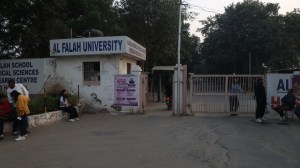Kill that apology
The sorry that is relevant in Rajiv assassination refers to the state of our anti-LTTE policy

The LTTE8217;s new move to rationalise the assassination of Rajiv Gandhi can only invite bemusement. In a well publicised interview, Anton Balasingham, the Tigers8217; chief negotiator and ideologue, has on the behalf of his organisation regretted Rajiv8217;s assassination and asked the Indian government and people to be largehearted and put that unfortunate episode behind them. If the statement had not come from a representative of a terrorist group as formidable as the LTTE, it would have been laughable. Just this week the LTTE asserted its destructive urge by killing a top Sri Lankan general. Not exactly the action of a group suddenly given over to the politenesses of reconciliation. The Indian government must certainly keep commitment to seeking peace in Sri Lanka. But there can be no denying the challenges posed to peace by the LTTE, both in Sri Lanka and in India.
Balasingham8217;s watery apology is curious. Rajiv Gandhi8217;s assassination was not born of a personal feud. By striking at him 15 years ago, the LTTE struck at a most visible symbol of India. When he arrived at that fateful election rally in Sriperumbudur, he had been prime minister till just a couple of years earlier. He was leader of the opposition, in fact of the largest political party represented in the just dissolved Lok Sabha. Hindsight indicates that had he lived, he would have been back in power at the Centre that very summer. That, even through the mourning, national politics moved on is a tribute to Indian resilience. It must not give the LTTE hope to get away with a half-hearted apology.
The country is also still to come to terms with other failings of that time. There was, already by the summer of 1991, realisation in India that sending in the IPKF was not the wisest course of action. But that realisation drew from an assessment of the dangers of getting embroiled in guerrilla warfare, not from any perceived lessening of the LTTE threat. Unfortunately, Dravidian and coalitional politics of day was allowed to dilute India8217;s resolve to remain alert to the LTTE challenge. It is a dilution that would be as dangerous today as it was then.
- 01
- 02
- 03
- 04
- 05






























